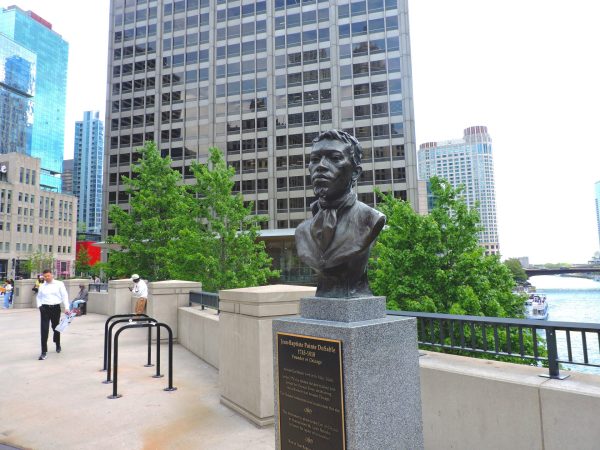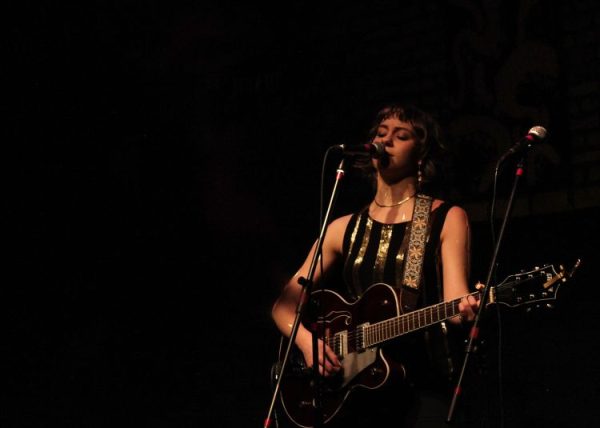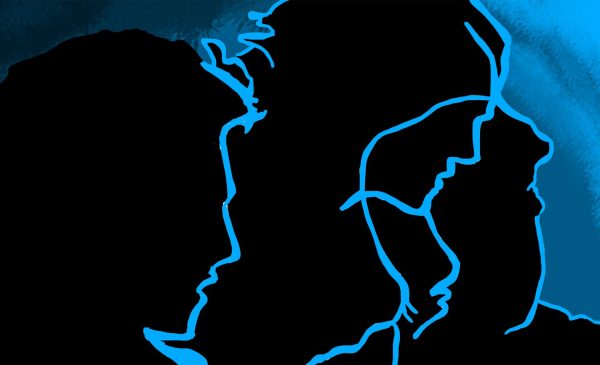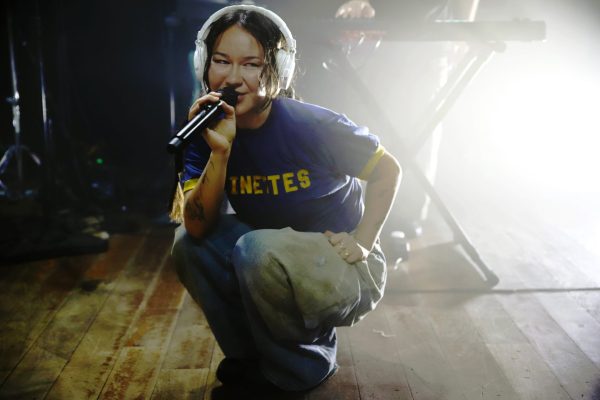Adam Rhodes’ time at Chicago Reader leaves a mark on the city

Courtesy of Adam Rhodes for The DePaulia
Sitting at their orange, lightning bolt print desk, Adam Rhodes turned on their computer to see their dog, Hibachi, on the screen. While this is an ordinary occurrence for them, this week was the last time they would do that as a reporter for the Chicago Reader. After being with the publication since August 2020, they decided to leave to become a training director at Investigative Reporters and Editors.
Rhodes’ passion for social justice reporting, and eventual specialization in it, did not come easy. After graduating from the University of Central Florida in 2015, they took the voyage out to New York City to report for Law360, a trade publication focused on legal news. After being in this role, they described their work as simply doing public relations for wealthy legal firms and not really reporting anything new or unique. Afterwards, they left to attend Northwestern University’s Medill School of Journalism to focus on social justice reporting.
“Now it just, it feels like I am number one, just like doing work that I care about. I could not give a [second thought] about what I wrote about but for now, I’m just so much more personally invested in the stuff I write about,” Rhodes said. “I have so much more personal satisfaction in my work. I feel like I’m contributing something to society, as opposed to just giving private equity attorneys a pat on the back for being terrible people.”
Despite only starting at the Reader in August 2020, they were quick to jump into action. In fact, Axios named one of their articles, “When Crime Goes Viral,” one of the top stories that changed Chicago in 2021. The story debated whether a law making it illegal to expose others to HIV was outdated, even hinting at it being racist and homophobic. Eventually, this led to Illinois Gov. J.B. Pritzker repealing the law.
“I kind of just approached the story on a personal level, like I always approach stories personally [thinking], ‘what are my ethics in this, what matters to me [and] ties in with a story,’” Rhodes said. “And you know, I have friends who are living with HIV, I’ve had partners who are living with HIV, so it’s like something that’s very near and dear to my heart. So, you know, I have a very strong, or like, I have a very strong belief that people living with HIV deserve to be free of stigma.”
Rhodes’ reporting style is unique in that it occasionally includes their own voice or story in the article, despite the topic being heavy in nature. Rhodes was quick to speak on this, saying, “My stories are informed by my lived experiences, and I think including that is just as truthful as the stories of people I report on.”
“I think especially as a queer person reporting on queer issues, I oftentimes have a frame of reference for things,” Rhodes said. “But you know [a long time ago I] experienced discrimination in the workplace because I’m queer … And you know, as like a non-binary person, I’ve experienced anxiety about health care and what do I do about my health care and the pandemic and stuff like that.”
Their work has inspired other Chicago Reader journalists and will leave a mark on the Chicago journalism community.
“I was inspired by their passion and drive to spotlight an underreported community,” said Kelly Garcia, a staff writer for the Chicago Reader. “It’ll be a near impossible task to fill the void they leave behind. Six months ago, Adam welcomed me with open arms to the Reader and laid the groundwork for social justice reporting.”






